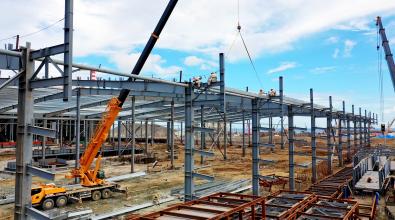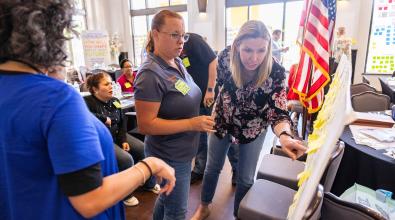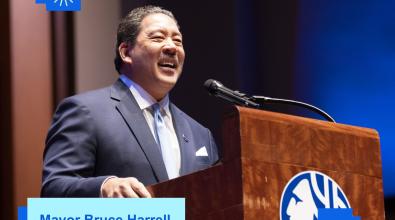 Read More
Read More
The Mayor’s Playbook: Bologna’s Matteo Lepore

Listen to This Article
Matteo Lepore has taken on his fair share of universal city challenges, including everything from cutting crime to improving transit, since being elected mayor of Bologna, Italy, in 2021. He’s also grappled with more unique concerns, such as the potential collapse of the Garisenda Tower, a 12th-century structure that shares a distinctive characteristic with a more famous landmark in nearby Pisa: its precarious lean.
And at every stop along the way, Mayor Lepore has depended on an expertise that he says is at the core of his 2,000-plus-year-old city and perfectly positions it to inspire other cities facing similar challenges. “Bologna is a ‘City of Knowledge,’” he tells Bloomberg Cities. “We have the oldest university in Europe and [as a result] we are a city of education and cultural exchange.”
For Lepore, Bologna’s identity as a “City of Knowledge” speaks to a legacy of learning that runs through its schools, businesses, and cultural institutions, as well as a formidable infrastructure and appetite for government innovation. When the city tackles any challenge, he says, it does so by tapping into this know-how in a variety of ways. It systematically mines resident insight. It sources academic expertise through a comprehensive city-university partnership that is dramatically expanding local government’s capacity. And it constantly aims to share its experience and intellectual resources with the larger metropolitan area and beyond.
ONE QUICK THOUGHT
Lepore’s top piece of advice for fellow mayors is to promote democracy at every step. “You can’t be a mayor without your community,” he says.
What it all adds up to is a city that is raising ambition around public-sector innovation not only throughout its region or Italy, but also across Europe and around the world. “It’s an ecosystem based on participation, culture, knowledge, and also international relations,” Lepore explains.
Here’s what mayors and their teams everywhere can learn from Bologna’s standout approach to solving problems.
Treating residents as thought partners, not just participants.
While virtually every local leader makes an effort to engage residents with an eye on delivering what people need when they need it, Lepore has spent the past decade raising the bar for what it means for city government to collaborate with the public.
The mayor’s commitment to this work has roots in a deceptively simple moment in 2011, when a group of Bologna residents were blocked by bureaucracy from repainting a park bench. In response, local leaders introduced collaboration pacts—formal agreements between the city and residents to solve public-space challenges together. Lepore was just beginning his career as a city councilor, overseeing areas like the economy and digital services. Early on, he recognized a broader truth: The city wasn’t making maximum use of local knowledge. The spirit of the collaboration pacts became a springboard for his decade-long mission to make it easier for residents not just to share ideas, but to act on them.
Lepore emphasizes the importance of civic imagination to describe his approach to city governance. And if it sounds like just another way to say resident engagement, it isn’t. It's a belief that great things are possible when cities cultivate new ideas and solutions from the ground up. In Bologna, that means going well beyond town halls or surveys. The city uses a wide range of tools, from familiar ones like participatory budgeting to more distinctive efforts, such as neighborhood labs where residents are given space, staff support, and resources to develop their own ideas.
Critically, Lepore—who has taken part in the Bloomberg Harvard City Leadership Initiative—emphasizes, this isn’t about participation for participation’s sake. It’s about crowdsourcing insights and expertise to drive change. “Civic imagination means that we are not only participating or collaborating, we are also using our heritage of values, our heritage of knowledge, and our skills, together, to imagine and then create our future in a concrete way,” he explains.
Lepore has approached governing this way from his first day as mayor: by starting with what people need and building solutions with them. When it became clear that young people were struggling in the wake of pandemic-related isolation and learning loss, his team didn’t just design programs from city hall. They listened. Working alongside families, teachers, and university partners, the city created a wide-ranging response that includes counseling for overwhelmed parents, grants for students to launch new creative outlets such as hip-hop workshops, and the opening of 30 new youth spaces. Libraries, public squares, and theaters were transformed into places for experimentation, poetry, and connection.
WHAT I’M WATCHING
Asked about work from another city he’s interested in replicating at home, Lepore cites the car-free “Super Blocks” of Barcelona. “It’s very important to regenerate public spaces,” he says.
That same hands-on, neighborhood-driven approach shapes Bologna’s evolving public health strategy. Instead of imposing one-size-fits-all solutions, the mayor’s team is going block by block, asking residents what challenges they face. Then, they’re using those insights to design new “community houses” that will offer locally tailored services ranging from psychiatric counseling to support with housing navigation.
And the mayor has leaned on resident insights and energy at every step to advance (and protect) what might be his signature achievement: a 30 km (20 mph) speed limit. As the New York Times noted last year, while such speed limits are not exactly unprecedented, Lepore’s effort represented a political landmine in “the land of Ferrari and Lamborghini.” The mayor believes the results speak for themselves: According to city data, 2024 was Bologna’s first year in decades with 0 pedestrian deaths, while overall traffic fatalities plummeted by 49 percent and bike sharing surged by 69 percent.
Redefining the city-university partnership.
It’s only natural that learning institutions, and especially the 937-year-old University of Bologna, are central to the mayor’s vision of a City of Knowledge. But his approach to partnering with outside experts is geared at not just identifying individual projects to tackle, but establishing a shared vision for local progress.
A key part of the puzzle for Lepore: the Urban Innovation Foundation. It’s a long-term partnership between the city and the University of Bologna that serves as a sort of twin city hall, amplifying local leaders’ capacity at every step.
According to Lepore, it was fitting that this partnership took off (with his involvement, when he was deputy mayor) with a focus on civic imagination. After all, the University of Bologna has nearly 100,000 students, and an early priority for the foundation was helping connect those students, including non-citizens, with local civic life so the city could plug into their experiences and insights as it solved problems.
But the power of this approach to university partnership goes far beyond creating space for residents to shape local solutions. Because it is not directly inside government, the foundation can hire talent the city needs to tackle emerging challenges—talent that might not otherwise be attainable for city hall. And it isn’t just a source of expertise, but also a partner to the mayor at every step of enacting a new solution.
Take the 30 km initiative. Even though Lepore ran on implementing the change, he faced more than a routine backlash from local drivers. Critics gathered over 50,000 signatures pushing for a referendum to block it. Protests broke out across the city. And the national government’s transportation minister weighed in, calling the approach “senseless” and even threatening to block it in court.
WHAT’S NEXT
Looking ahead to work he’s excited about, Lepore cites his city’s tradition of supercomputing (its flagship supercomputer is called Leonardo, after Leonardo da Vinci, who is believed to have lived in Bologna for a period) and argues that cities should “dominate” technologies like AI, rather than be passive consumers of them. “My dream is to apply the democratic approach and City of Knowledge idea to AI,” he explains.
But the mayor wasn’t alone. Rather than depend solely on his electoral mandate, he was able to lean on everyday residents who, after receiving storytelling and communication training from experts at the foundation, served as “ambassadors” for the effort, fanning out across the city to ensure he was able to fulfill his campaign promise. The foundation also helped source the technical expertise the city has used to take on complementary traffic-calming initiatives in tandem with the speed-limit change, reshaping local transit more broadly. Another example is the city’s management of Garisenda Tower, which veered toward collapse in 2023. According to Lepore, it was experts at the university whose technical skills helped him stave off that crisis, which the city is now addressing with a long-term restoration plan.
The larger lesson for other mayors is a simple one: Build lasting relationships with your knowledge centers that truly embed them in the city’s work, not just as occasional partners, but as trusted collaborators. “You want to be sure you are not only co-creating a solution but you are sharing a view about the urban agenda,” Lepore says.
Spreading knowledge across the metropolitan area and the world.
Lepore takes seriously his dual role as mayor of both Bologna (population 400,000) and its larger metropolitan area (population 1 million). He’s especially mindful of the city’s historical tendency to prioritize the urban core over surrounding communities—and he’s working to change that. His administration is advancing a major tram project to improve mobility across the region, while his commitment to civic imagination has inspired the “Geography of Culture” initiative, which is aimed at ensuring all residents, not just those in the city center, have free access to cultural events.
But his outward-facing approach doesn’t stop at the regional level. He sees mayors as both local stewards and global peers. That perspective drives his support for other Italian cities working to replicate Bologna’s 30 km speed limit, and fuels his ambition for Bologna to achieve carbon neutrality by 2030. Reaching that goal will require the full toolkit of his leadership: tapping resident insights, partnering with universities, and coordinating across the metropolitan area. It also includes collaborating with cities across Europe to deliver on shared climate priorities.
Through it all, Lepore is clear that innovation is not the end goal. “Innovation for me is a process and a method,” he explains. “But as a political person, I think that innovation for us needs to also be a vision of common good.”

